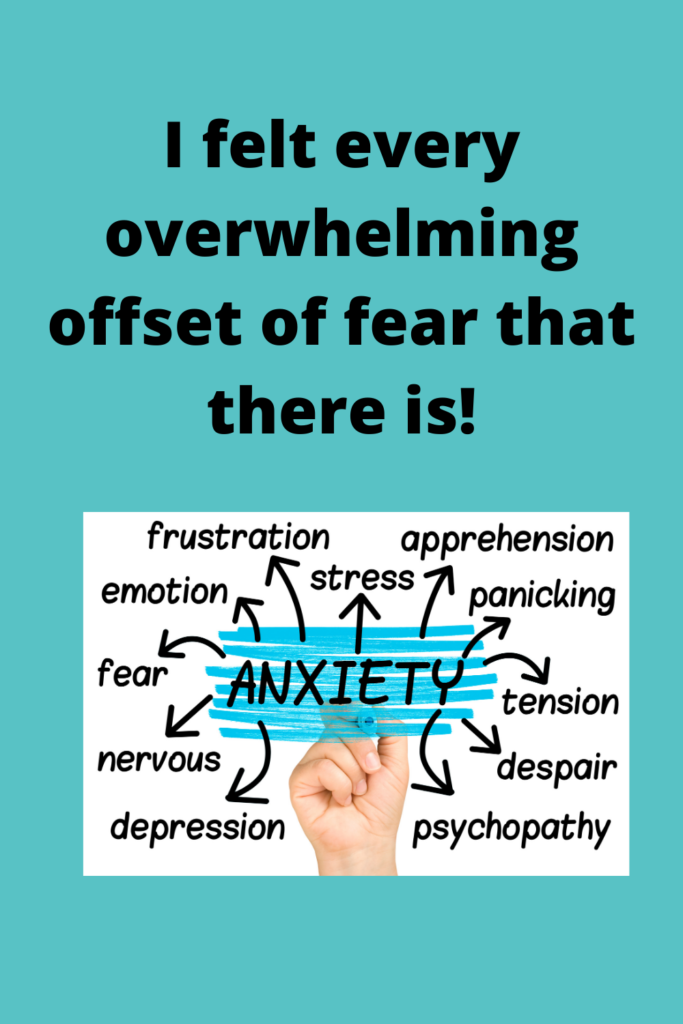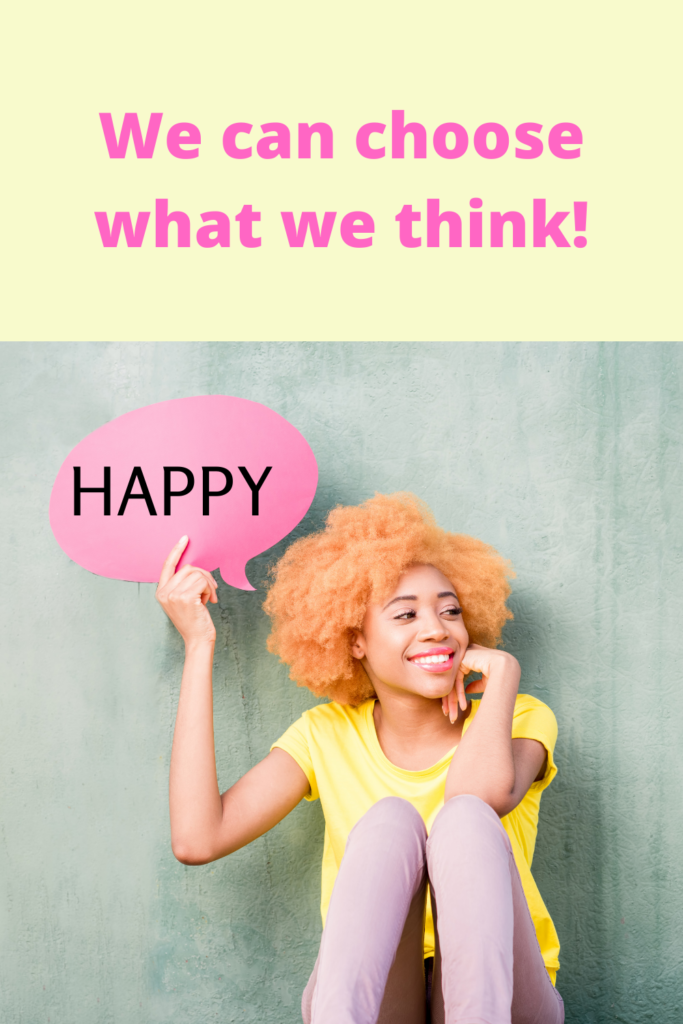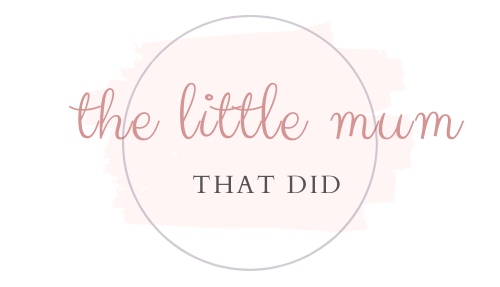No one can fully understand what it’s like to suffer anxiety. Until they do themselves. And that was certainly the case for me. I guess I was always a ‘worrier’ kind of girl. But never to the full extent of what is considered anxiety.
That was until I was 11 weeks pregnant with my first daughter. And my dad died unexpectedly. One day I was sitting having coffee with him, excited about the new life that was growing inside of me. And the next he was gone.
Just like that.
And from that moment, life for me changed. I suddenly understood how fragile life is. And how quickly life can change. Then, when my daughter was born all I could think about was making sure that I kept her alive and safe.
I honestly thought she was going to break. I felt anxious all the time. I didn’t like to be away from her. I put gates up all over the place. I even tied her into her cot at night with one of those ridiculous baby straps so I didn’t have to worry about her rolling on to her stomach and stop breathing.
Then one day, while staying with my father in law, he suggested that he take her with him into town while he ran some errands. I was absolutely beside myself. I’ve always had an irrational fear of cars on winding roads and that particular stretch of road to get into town and back is not an easy drive.
But my husband made me let her go.
My anxiety hit the roof.

But I knew that it was getting to the point that it was now affecting my 2 year old daughter. And it wasn’t just limiting MY life anymore, but hers too.
And to my surprise ……… she actually came back.
And not just in one piece. She had more to her now. She had experienced being away from me. With someone new. Experiencing and seeing things from a new perspective. She experienced being treated. And getting spoilt. And getting the type of authentic attention that kids get from their grandparents that they just don’t get from us.
She even got ice-cream in the morning.
And of course she loved it.
This experience was not just good for her, but for me too. My brain had literally tricked me into thinking that they would not return. And I couldn’t believe it.
But they did.
And that’s the day that I realised the power that my brain holds over me and my anxiety. That my thoughts are only thoughts. NOT my true reality. And that I was caught in the trap of dwelling on negative things that might not even happen.
Anxiety sux. Especially when it takes hold of you everyday and limits you from being able to do the things that you want to be able to do. I knew that this was now starting to have an affect on my children, so it became my ultimate desire to work out ways to deal with my anxiety so that we could live a more joyful and free life together without that constant worry getting in the way stopping us from living a purposeful life.
Of course, my anxiety is always there. And it is something that I know I will always have to deal with. But I have come a long way since then. And I don’t suffer anywhere near as much as I used to. It takes work. But you can train your brain how to focus on the good stuff and think yourself free of anxiety when it arises!

These are the 6 things that I have found to be the most effective in managing and overcoming my anxiety.
#1 Stop thinking of anxiety as bad and instead be grateful for it.
I know this sounds strange. Why would I tell you to be grateful for something that makes us feel so bad sometimes? Well, anxiety is something that most of us deal with on a regular basis. And to be fair to anxiety, sometimes we need it in order to keep ourselves safe. It is supposed to motivate us to avoid ‘real’ danger, but it is more of a primitive tool that our brains haven’t learnt to adapt yet. There are times when we are actually supposed to feel anxious, like when we are standing at the top of a steep cliff so we know not to jump off. Or the night before a work deadline is due to motivate us to get it done. It is the very reason that humans have survived for so long and has served us well in getting us, our ancestors and the ones before them to where we are today.
But for some of us, anxiety occurs way too often in a normal day, simply because our brains are not trained to tell the difference between a lion chasing us down the road or that big deadline we need to meet at work. When I start to feel anxiety, the first thing I do is remember that it is just my brain working overtime in order to keep me safe or from experiencing pain. This enables me to feel gratitude for what my brain is actually trying to do. It really helps when I talk to my brain, give it gratitude for looking out for my safety and then I reassure it that we are ok, we are safe and that there is really no need to worry.
So what can you do when your anxiety is not there for the right reason?
#2 Accept your anxiety, let yourself feel the emotions with willingness- But don’t get stuck there.
The brain will do everything it can to help you avoid feeling pain and suffering. What you do need to understand is that anxiety itself is completely harmless. It is not the anxiety that causes us problems but it’s the way that we react to it and try to resist it that causes the real pain.
Like I said, anxiety sux. It’s uncomfortable. It doesn’t feel good. And I know that as soon as I start feeling this discomfort my initial go to is to try to avoid it. But what you need to remember here is that it is not a matter of getting rid of it, but more a matter of how we deal with it in order to move forward.
Imagine for a moment that you are being chased by a lion down your street. Typically, your body would tense up. You would go into fight or flight mode. Your heart would race and the adrenaline would kick in to get you motivated to survive. The truth is that your brain literally cannot tell the difference between that lion or your boss putting pressure on you to meet that next deadline. The real trick here is that we need to go in the complete other direction of fight or flight in order to decrease our anxiety. Resisting and fighting your feelings of anxiety will only give it more power. Instead we need to realise that we are RESPONSE able. We can decide how to respond to it by accepting it and feeling the whole emotion.
You’ll need to be brave here. Recognise when you are feeling anxious. And become self aware with how you are responding to it at that moment. You need to feel out all of these emotions in order to not get stuck there.
YOU can choose how you respond to anxiety- The Do’s and the Don’t’s
You may not realise it but you have full control over how you choose to respond to anxiety. So what should you NOT DO?
- Do NOT try to resist it.
- Do NOT try to react to it.
- Do NOT avoid it by drinking that whole bottle of wine or eating that whole bar of chocolate in the pantry.
Trying to get rid of your pain only amplifies it. Thinking about wanting to stop it, or masking those unwanted feelings with unhealthy behaviours will only serve to actively increase it in the end.
How to actively accept anxiety.
- Sit with it.
- Stop trying to control it.
- Respond to your feelings by feeling them.
- Respond actively to your thoughts by thinking them.
- Feel any bodily sensations. Think about where your pain is in your body.
- Breathe, relax and simply accept the uncomfortable feelings.
Accept it. Own it. And suddenly you have all the power to change it. By quietly witnessing it and observing it you suddenly have all the power to shift it. It’s a little bit like facing that lion you fear would eat you in the street. If you were to walk towards it and feel that fear you would probably see that lion for what it truly is. Just a cute little domestic cat minding it’s own business. And yet it seemed so big when you looked at it through fear laced eyes.
Tip: Don’t be in a hurry to get out of anxiety. Don’t be afraid to feel it and allow it because then it will be easy to move through it.
#3 Understand that it is your thoughts that create feelings.
Thoughts are the culprit of all feelings. It is not possible to feel something unless you think it first. It’s our thoughts that are the lenses through which we view our world. We let that lens dictate how we interpret our experiences.
For example. What if you did see a lion walking towards you hungrily as you walk down the street? It is not the actual lion that would cause you to feel anxiety. It is the THOUGHT that you are going to get eaten by the lion that creates that emotion in you.
But you can learn to see your thoughts in a new way and free yourself from the illusions of language. The problem for most of us is that we believe we are our thoughts. We believe that what we think is true about ourselves and we think that what we think is who we are.
So when you are feeling anxious, it is important to remind yourself, that the only reason you are feeling anxious is because of what you are thinking. Thoughts are just thoughts and we have the power to decide to think something different.
#4 Find curiosity in your thoughts.
Objectively notice what you are thinking by distancing yourself from your thoughts. Sit down and really take the time in noticing the thoughts you are thinking. Journaling is one of the best ways to write down all of your thoughts, get them out of your head and onto a piece of paper. Sometimes I’m amazed at what kind of crazy comes out of me when I’m writing them down or when I simply just notice and become aware of them. Describe your anxiety as if you were describing it to someone who has never experienced it before and then read through the description. Greet your thoughts with compassion and be curious as to why you are choosing to think that.
#5 Get aggressive with your brain bully so you can change the way you think.
Now that you have sat with your emotions and felt them through it’s time to get aggressive and meet that anxiety head on. Don’t allow yourself to cower to your brain bully anymore. It’s time to stand up and fight with thoughtful aggression. Tell your brain bully that you will not recede to its interpretation of the world.
Managing your mind and deciding what you want it to think about is the biggest key to overcoming anxiety. We often don’t realise that many of the thoughts that we have throughout the day are not serving us. And yet we are still inclined to take them literally. Know that there are certainly things in the world that we have no control over. But what we do have control over is how we think about those things.
Become more aware of how you are thinking. Think about why you think what you think? Do you want to keep thinking that way? If not, stand up to it! Catch yourself before you react and decide to respond to it effectively instead.
#6 Decide what to think on purpose- How to stop thinking negative thoughts.
(Stop! Do not move on unless you have processed and allowed yourself to feel your anxiety first. It doesn’t matter if you sat with it even just for a minute. This part of the process must be taken in order to move through it).
- Objectively notice the thought and feeling before the reaction happens and make a deliberate choice by directing your mind and telling it what to think. To be able to respond instead of reacting, you need to give yourself time. Time to stop, breathe, notice and then activate your response mode only when you are calm.
2. Look at those thoughts you put down on paper. Then ask yourself, ‘Is this something I really want to think or not?” Then decide what it is that you do want to think. Remember, everything can be evaluated negatively if you choose it to be. Or, we can use replacement thoughts to encourage more positive thinking. The initial thought should not be outrageously changed. It can be as simple as changing a negative thought into a neutral thought by removing the description from it. And then incrementally changed to positive thoughts as we feel better about whatever we are thinking about.
For example, say you were thinking, ‘I have a fat body’. We can change this to a simple, ‘I have a body’. There is no description placed in that sentence anymore but the negativity and the judgement is now removed. Over time you can add to it to direct your mind to the positive thoughts you have about your body. You can always direct your mind in small steps to think more positive thoughts.
Be mindful here, you cannot pretend to think positive thoughts in order to feel positive emotion. All replacement thoughts have to be believable to you and must make you feel good. And this just takes practice. Just start by challenging those thought processes. And you’ll see that the more you redirect your thoughts away from negativity the less you will feel them.
“Warning: when feelings become the means of thinking, or if we cannot think greater than how we feel… we can never change. To change is to think greater than how we feel. To change is to act greater than the familiar feelings of the memorized self.” – Dr. Joe Dispenza
#7 Take time to visualise positive things rather than dwelling on the negative.
Meet your anxiety with aggression. Visualise what you do want. Not what you don’t want. It’s easy to get caught up in our negative feedback loops. Humans are an experts at visualisation but use it in the wrong way when it comes to anxiety. We tend to do-a brilliant job of mental imagery when it comes to thinking bad things. the trick is to stop dwelling on the bad things that may not ever happen and start obsessing over things that make you feel good instead.
#8 Understand the science to releasing anxiety and thinking positively.
What if I told you that you could rewire your brain so you can get back on the positivity train and step off the anxiety express? The amazing thing about your brain is that its made to rewire itself all the time. Scientists used to think that after childhood our brain was pretty much locked in place. But now we know that the brain can change depending on how we use it. We can actually train it to send those neural pathways in different directions in order to feel better.
The biggest takeaway- THINKING CAUSES ANXIETY
Think about it. That which you give your attention and which you most focus on in your daily life is your conscious reality. If you focus upon loneliness, fear, limitations or suffering so too will you draw more of the same to you.
As you focus upon abundance, creativity, joy and love so too will you draw more of those things to you. It is the nature of your thoughts to encourage more of the same. You attract more of what you think about most.
When you repeat a behaviour, an action, an emotion or a thought the pathway responsible for sending the signal in your brain, becomes stronger and it becomes easier and easier to continue to repeat this. This is how emotional triggers are created and negative or positive patterns are formed. Whatever you do repeatedly changes the physical workings of the neuro-connections in your brain. So tell yourself positive things more often than you tell yourself the bad and you will see your outlook start to change.
Learn to focus on reating more optimism in your life. Because optimism, and positive thinking are the foundations to a happy life.
Remember, your thoughts and feelings lead to your actions. So therefore,
‘When you think better, you feel better. So you do better.’
